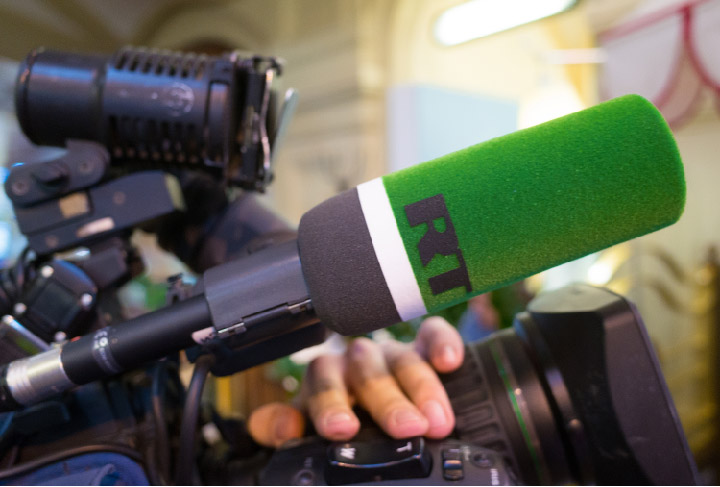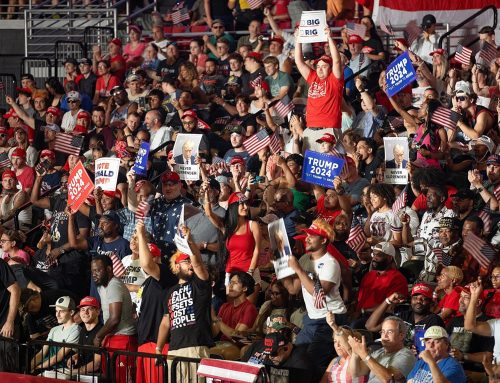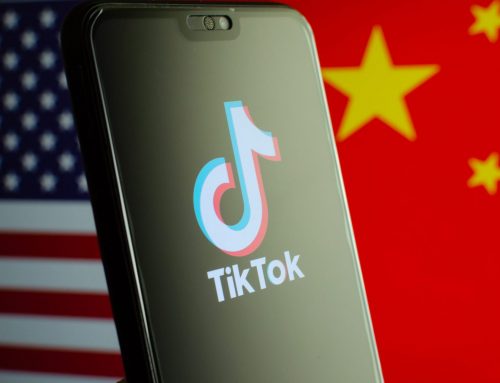Russian state media last week hammered the United States over its response to the migrant crisis at the southern border, suggesting that the Biden administration is intentionally downplaying and concealing the poor conditions. State media amplified at times competing messages claiming that the Trump administration handled the border crisis more effectively than the Biden administration, while simultaneously calling out the Biden administration for adopting some of the same policies as those that were criticized under Trump. A particular point of emphasis was highlighting Kamala Harris’ response to a reporter’s question about visiting the border, with Sputnik claiming that the vice president “laughed off” the border crisis (replete with a “laughing Harris” cartoon). Marking the 22nd anniversary of the NATO bombing campaign of Yugoslavia in 1999, Russian state media and diplomats pushed predictable messages criticizing the United States and NATO for their actions. Several tweets and articles highlighted then-Russian Prime Minister Yevgeny Primakov’s decision to cancel a trip to the United States midflight after the commencement of the campaign, which Primakov labelled a “war crime.” Following the killings of Asian-American women in Atlanta two weeks ago, Russian state media balanced messaging calling out the United States for its racism, while also promoting the notion that the topic of racism is abused by the “identity politics” of the left. This was contrasted with the alleged treatment of ethnic minorities in Russia, which was depicted in a far rosier light. Finally, Russia continued its messaging blitz around coronavirus vaccines, with the usual mix of controversies around Western vaccines and vaccination policies and pro-Sputnik V propaganda. Of note last week was an emphasis on covering the dispute between the United Kingdom and EU over access to the AstraZeneca vaccines—a rift that was depicted as a deepening crisis.
Last week, the EU, United States, United Kingdom, and Canada imposed sanctions on four senior Chinese officials over their role in the human rights abuses perpetrated against the Uyghur ethnic group in Xinjiang. Over the course of the week, Chinese authorities hit back by sanctioning officials, institutions, and research organizations around the Atlantic. The Chinese government’s reaction to the EU’s sanctions was particularly forceful, with several members of the European Parliament as well the EU’s main foreign policy decision-making body being sanctioned. “EU” was the third most mentioned term by Chinese diplomatic Twitter accounts last week. Chinese government-backed messaging around the sanctions warned that they would harm bilateral relations, accused the sanctioned European officials of spreading “lies and disinformation,” diminished the importance of transatlantic democracies on the global stage, and accused European countries of conducting their own human rights violations. Beyond the EU, a Chinese diplomat called Canada “a running dog of the US,” and MFA spokesperson Hua Chunying brought up Australia’s war crimes in Afghanistan. As the sanctions drama was unfolding, statements made last year by several clothing companies concerned about forced labor reports out of Xinjiang resurfaced. “Xinjiang” was the most mentioned word by all Chinese accounts monitored on Hamilton 2.0 last week, while “XinjiangCotton” was the tenth most mentioned term by diplomatic accounts. Hua Chunying set the tone for China’s response last Thursday by posting a photo of smiling Uyghur cotton workers alongside a U.S. cotton field in Mississippi in 1908. The whataboutism argument was repeated even more forcefully in a People’s Daily cartoon portraying democracies critical of China as KKK slaveowners. In parallel with these highly provocative points, state media interviewed people in Xinjiang, so they could testify to the absence of forced labor there. This was accompanied by extensive coverage of the “spontaneous” boycotts organized by Chinese citizens and celebrities against H&M and others. More broadly, China’s state media and diplomats pushed the idea that criticism of their policies in Xinjiang are part of a grand U.S. conspiracy to destabilize China. Finally, while it was somewhat crowded out by the higher profile issues of the last week, Chinese state media continued covering Anti-Asian racism, particularly in the United States.
Iranian state media and diplomats last week reported on the inking of a new 25 year strategic partnership between Iran and China, known as the Comprehensive Strategic Partnership. Under the agreement, Iran will supply China with crude oil in exchange for major Chinese investment, particularly in its oil and gas industries and security sector. The agreement was trumpeted by Iranian politicians, and regime-linked media emphasized that this was a dire development for U.S. global power. China overtook the United States as the second most mentioned country last week by Tehran-linked accounts (after Iran). Perhaps relatedly, regime-linked media published some stories on the rise of hate crimes against Asian Americans and Pacific Islanders in the United States, as well as the protests against these crimes. These outputs were mostly factual stories with little editorializing or embellishment; although, PressTV’s commentary was particularly pointed. In coronavirus coverage, the spokesman for the Ministry of Public Health celebrated the importation of more Sputnik V vaccines from Russia, and he acknowledged that there was pressure for the government to import other vaccines from other sources. He also lamented the inequity of vaccine distribution worldwide. Finally, Tehran-linked media reported heavily on a statement from Russian Foreign Minister Sergey Lavrov placing the blame for the failure of the JCPOA on the United States. Lavrov’s statement, cited by Iranian news outlets, suggested the U.S. failure to return to the agreement represents political paralysis in Washington.
Explore the Hamilton 2.0 dashboard here.
The views expressed in GMF publications and commentary are the views of the author alone.








